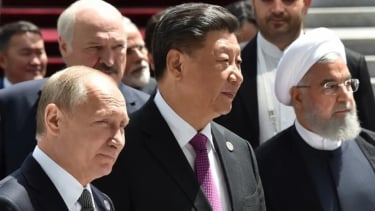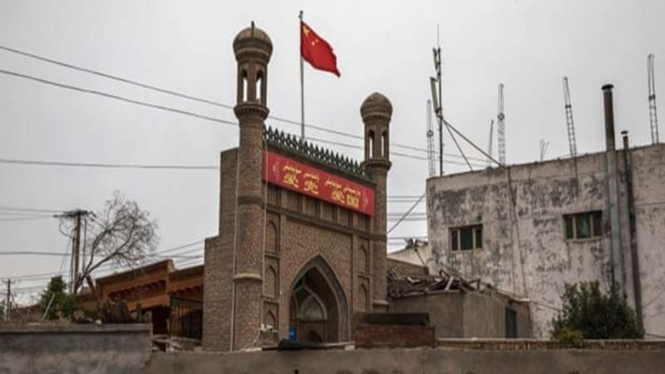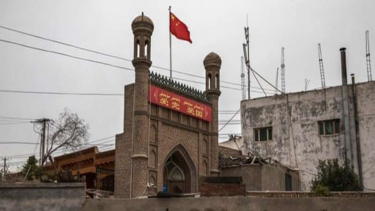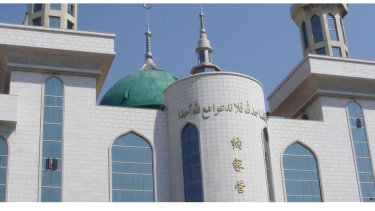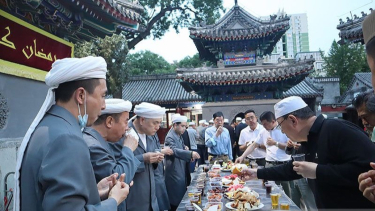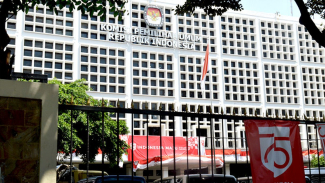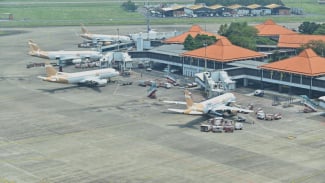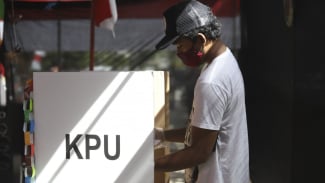Human Rights Watch Accuses China of Destroying Mosques
- Getty Images/Kevin Frayer
China – Human Rights Watch (HRW) in a recent report accused China of closing, destroying mosques. These acts are part of a systematic effort to curb the practice of Islam in China.
There are about 20 million Muslims in China, which is officially atheist but says it allows religious freedom, as reported from BBC.
However, observers said that there has been an increased crackdown on organised religion in recent years with Beijing seeking greater control.
Masjid di China
- DW
The BBC contacted China's foreign ministry and ethnic affairs commission for comment in advance of publication of the HRW report.
"The Chinese government's closure, destruction and repurposing of mosques is part of a systemic effort to curb the practice of Islam in China," said Maya Wang, acting China director at Human Rights Watch.
The report follows mounting evidence of systematic human rights abuses against Uyghur Muslims in China's north-western Xinjiang region. Beijing denies the accusations of abuse.
Most of China's Muslims live in the country's north-west, which includes Xinjiang, Qinghai, Gansu and Ningxia.
In the Muslim-majority village of Liaoqiao in the autonomous region of Ningxia, three of six mosques have been stripped of their domes and minarets, according to HRW. The rest have had their main prayer halls destroyed, it said.
Satellite footage obtained by HRW showed a round dome at a mosque in Liaoqiao village being replaced by a Chinese-style pagoda sometime between October 2018 and January 2020.
Para imam masjid menyantap hidangan buka puasa bersama jamaah di halaman Masjid Niujie, Beijing, China.
- ANTARA FOTO/M. IRFAN ILMIE.
About 1,300 mosques in Ningxia have been closed or converted since 2020, Hannah Theaker, a scholar on Chinese Muslims stated.
"That number represents a third of the total mosques in the region,"
Under China's leader Xi Jinping the Communist Party has sought to align religion with its political ideology and Chinese culture.
In 2018, the Chinese Communist Party's central committee published a document that referred to the control and consolidation of mosques. It urged state governments to "demolish more and build fewer, and make efforts to compress the overall number" of such structures.
The construction, layout and funding of mosques must be "strictly monitored", according to the document.
Such repression has been most longstanding and severe in Tibet and Xinjiang, but it has also extended to other areas.
There are two major Muslim ethnic groups in China. The Huis are descended from Muslims who arrived in China in the 8th Century during the Tang Dynasty.
The second group is the Uyghurs, mostly residing in Xinjiang. About two-thirds of the mosques in Xinjiang have been damaged or destroyed since 2017, according to a report by the Australian Strategic Policy Institute, an independent think-tank.
"Generally speaking, Ningxia has been a pilot site for implementation of the 'Sinicisation' policy, and hence, both renovations and mergers appear to have begun in Ningxia ahead of other provinces," said Dr Theaker, who is co-writing a report on Hui Muslims with US-based academic David Stroup.
"Sinicisation" refers to Mr Xi's efforts to transform religious beliefs to reflect Chinese culture and society.
The Chinese government claims the consolidation of mosques - which often happens when villagers are relocated or combined - helps reduce the economic burden on Muslims, but some Hui Muslims believe it is part of efforts to redirect their loyalty towards the Party.
Some residents have publicly opposed these "Sinicisation" policies, but their resistance has so far been futile.
Over the years, many have been jailed or detained after clashing with authorities over the closure or demolition of mosques.
After removing external elements from mosques, local governments would then remove facilities essential for religious activities such as ablution halls and preacher's podiums, according to US-based Hui activist Ma Ju.
"When people stop going to the mosques, the authorities would then use that as an excuse to close the mosques," he concluded, as quoted in the Human Rights Watch report.
